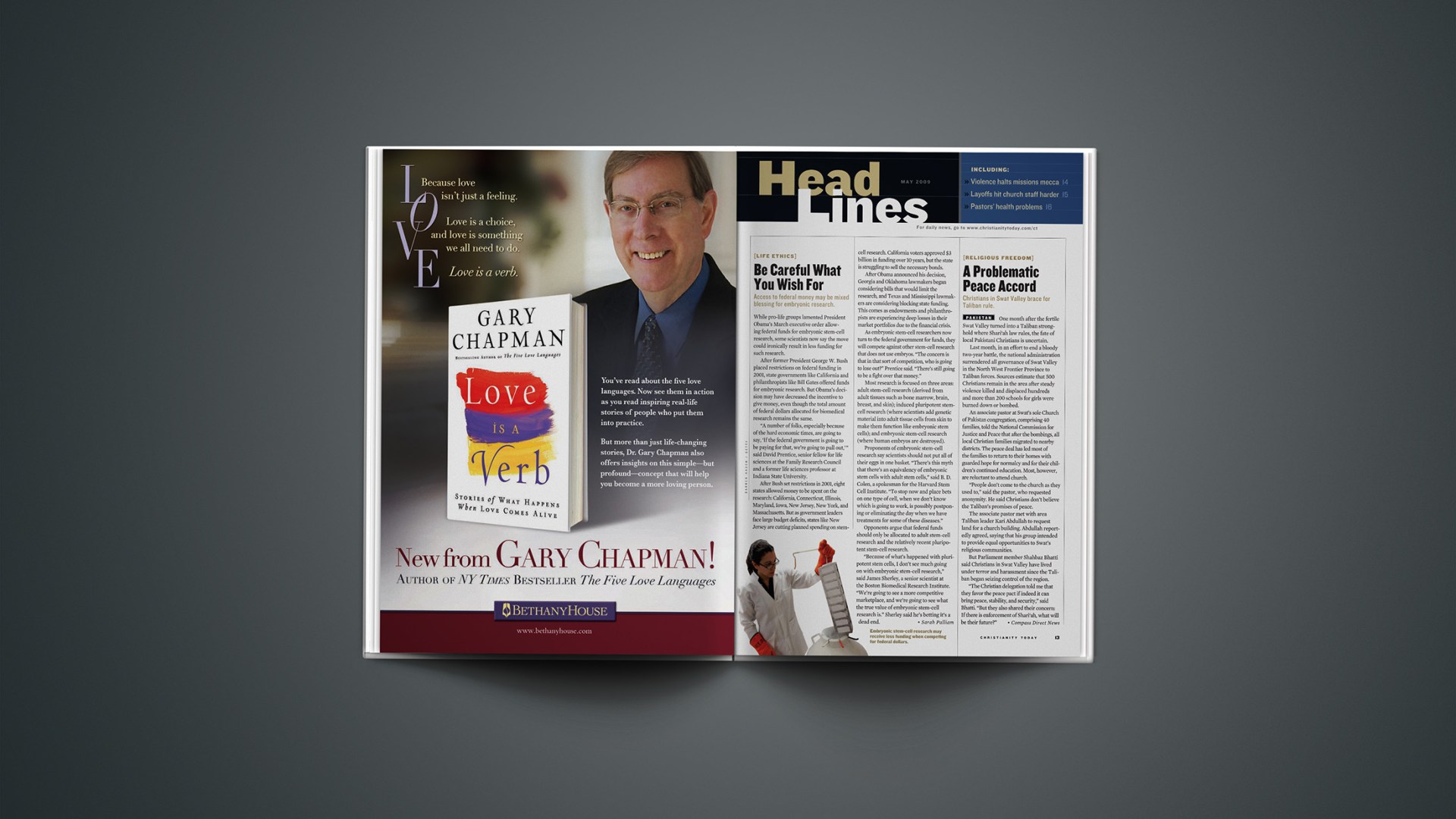While pro-life groups lamented President Obama’s March executive order allowing federal funds for embryonic stem-cell research, some scientists now say the move could ironically result in less funding for such research.
After former President George W. Bush placed restrictions on federal funding in 2001, state governments like California and philanthropists like Bill Gates offered funds for embryonic research. But Obama’s decision may have decreased the incentive to give money, even though the total amount of federal dollars allocated for biomedical research remains the same.
“A number of folks, especially because of the hard economic times, are going to say, ‘If the federal government is going to be paying for that, we’re going to pull out,’?” said David Prentice, senior fellow for life sciences at the Family Research Council and a former life sciences professor at Indiana State University.
After Bush set restrictions in 2001, eight states allowed money to be spent on the research: California, Connecticut, Illinois, Maryland, Iowa, New Jersey, New York, and Massachusetts. But as government leaders face large budget deficits, states like New Jersey are cutting planned spending on stem-cell research. California voters approved $3 billion in funding over 10 years, but the state is struggling to sell the necessary bonds.
After Obama announced his decision, Georgia and Oklahoma lawmakers began considering bills that would limit the research, and Texas and Mississippi lawmakers are considering blocking state funding. This comes as endowments and philanthropists are experiencing deep losses in their market portfolios due to the financial crisis.
As embryonic stem-cell researchers now turn to the federal government for funds, they will compete against other stem-cell research that does not use embryos. “The concern is that in that sort of competition, who is going to lose out?” Prentice said. “There’s still going to be a fight over that money.”
Most research is focused on three areas: adult stem-cell research (derived from adult tissues such as bone marrow, brain, breast, and skin); induced pluripotent stem-cell research (where scientists add genetic material into adult tissue cells from skin to make them function like embryonic stem cells); and embryonic stem-cell research (where human embryos are destroyed).
Proponents of embryonic stem-cell research say scientists should not put all of their eggs in one basket. “There’s this myth that there’s an equivalency of embryonic stem cells with adult stem cells,” said B. D. Colen, a spokesman for the Harvard Stem Cell Institute. “To stop now and place bets on one type of cell, when we don’t know which is going to work, is possibly postponing or eliminating the day when we have treatments for some of these diseases.”
Opponents argue that federal funds should only be allocated to adult stem-cell research and the relatively recent pluripotent stem-cell research.
“Because of what’s happened with pluripotent stem cells, I don’t see much going on with embryonic stem-cell research,” said James Sherley, a senior scientist at the Boston Biomedical Research Institute. “We’re going to see a more competitive marketplace, and we’re going to see what the true value of embryonic stem-cell research is.” Sherley said he’s betting it’s a dead end.
Copyright © 2009 Christianity Today. Click for reprint information.
Related Elsewhere:
The New York Times also wrote about how President Obama’s stem cell decision worries some scientists.
Christianity Today has a special section on stem cell research and continues political developments on the politics blog.










